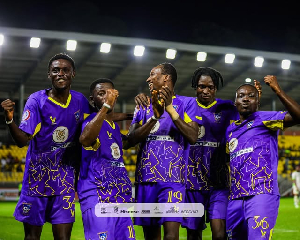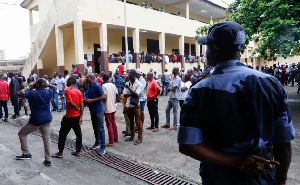The two major teacher unions in the country – the Ghana National Association of Teachers (GNAT) and the National Association of Graduate Teachers (NAGRAT) – have expressed satisfaction with negotiations regarding their grievances, so far.
According to the two bodies, much is still left to be done.
Speaking to TV3’s labour correspondent on ongoing negotiations, Christian Addai-Poku, the National President of NAGRAT, noted that negotiations have zeroed in on incremental credits and vehicle maintenance allowances.
“I must say we have had progress and we are hoping that when we meet…we will be able to conclude the issues concerning those two [matters],” he told Daniel Opoku.
He said a meeting has been scheduled for Thursday, May 30, 2013 for the conclusion of the issues.
Director of Salaries, Terms and Conditions at GNAT, Kwamena Ahenakwa-Quarshie, explained that the incremental credit has been “partially” dealt with.
“What is going to happen after June is that they will restore every teacher or GES worker to where he is supposed to be as at 2013. Then we will have five months arrears to be paid at the end of June,” he added.
The teacher unions maintained, however, that government needed to do more to settle their grievances once and for all.
“They have continuously transferred people but have also continuously denied the people their transfer grants. And it must be noted that it is part of our conditions of service and it is enshrined in our collective [bargaining] agreement that you pay the person for the inconvenience you going to cause the person,” grumbled Mr Addai-Poku.
“With the car maintenance allowance, GES initially submitted a data to the Ministry of Finance through Fair Wages and Salaries Commission but the data was found to be problematic so they have given it back to GES to work with them,” Mr Ahenakwa-Quarshie explained.
“So they have assembled their internal auditors who are working on them.”
The teachers suspended an eight-day long strike on March 26, 2013 after an assurance from President John Dramani Mahama that their grievances will be settled.
Regional News of Wednesday, 29 May 2013
Source: Tv3 News













